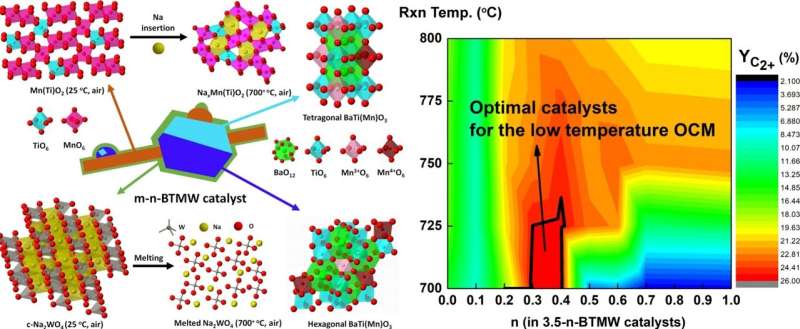Producing ethylene from food waste without greenhouse gas emissions

The Korea Institute of Science and Technology (KIST) announced that a research team led by Dr. Jeong-Myeong Ha of the Clean Energy Research Center developed a process technology and catalyst for removing hydrogen sulfide, a toxic substance, during the process of ethylene production from methane in biogas.
Biogas, which is produced by microorganisms present in food waste, livestock manure, and sewage sludge, consists mainly of methane that can be used for low-cost energy, including power generation, heating, and addition to town gas. Methane can acquire a large added value if converted into ethylene, a basic raw material for industries, through chemical reactions. Ethylene is a typical non-petroleum product that can reduce greenhouse gases.
The research team developed a process technology in 2021 that produces ethylene from biogas with the help of catalysts. In addition to methane, which is fairly useful in general, biogas contains a significant amount of toxic hydrogen sulfide, which is difficult to remove and interferes with the catalytic reaction in ethylene production. The developed technology facilitates ethylene production by oxidizing and removing hydrogen sulfide during the production process.
The researchers then developed a catalyst to improve reaction activity of ethylene production from biogas and methane. This catalyst is highly resistant to hydrogen sulfide, thus not requiring hydrogen sulfide removal from biogas, while the energy consumption can be reduced by lowering the operating temperature from 800 C to 700 C due to improved reaction activity. Through such a reaction, it is possible to directly produce ethylene from biogas that contains hydrogen sulfide.
Dr. Jeong-Myeong Ha stated, "Biogas is already produced in large quantities in Korea, and if biogas is used as a raw material for the chemical industry rather than just for heating, biogas producers who struggle to achieve carbon neutrality will have a larger market and be able to provide new raw materials without greenhouse gas emissions." He also mentioned, "This technology will draw attention from related companies as it can utilize not only biogas but also methane generated from various wastes such as plastics."
More information: Lien Thi Do et al, Hybrid catalysts containing Ba, Ti, Mn, Na, and W for the low-temperature oxidative coupling of methane, Applied Catalysis B: Environmental (2021). DOI: 10.1016/j.apcatb.2021.120553
Journal information: Applied Catalysis B: Environmental
Provided by National Research Council of Science & Technology





















